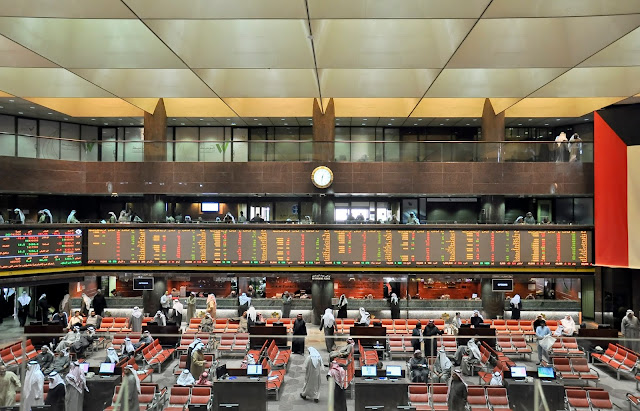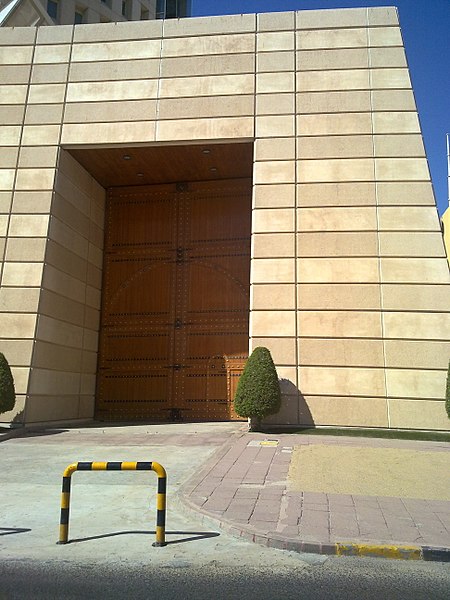This is considered one of the most important Arab financial markets and is equated to international stock exchanges in terms of value and volume of traded shares. Kuwaiti securities market plays a key role in managing the local securities market. Securities market management has adopted a new method called “written bidding”. This method is applied to trade carried out by registered brokers that require detailed, accurate information regarding the offer or “bid” of the operations they wish to conduct.
The KCCI is an active member of several Arab and non-Arab chambers. In planned projects, an increasing emphasis is placed on privatization. Following reports from the World Bank and the International Monetary Fund in 1993, the government approved a new economic strategy, which included the establishment of liberalization of interest rate control in order to stimulate competition and proposed privatization strategies for various economic sectors. A partial sale of state shares in companies was offered, and the rest of the state companies were encouraged to establish joint-stock companies with international investors. Under consideration is a solution called “Build-put-in-transfer” for utility projects in energy, water, and wastewater. In 1994, two mutual funds were established, the First Investment Fund (for the acquisition of shares in companies) and the Real Estate Investment Fund to place assets owned by Kuwait Investment Management. In an attempt to expand the investment base, emigrants in Kuwait are allowed to buy units from the Real Estate Investment Fund, this is their first way into the local property market. The government is also considering issuing permits to foreign oil companies for independent action in areas close to the Iraqi border. A proposal to allow foreign businesses to compete directly in the private sector was discussed. In addition, the Kuwaiti government also discussed a proposal to establish free trade zones to attract investors. A decision taken in 1994 to open a free trade zone in Shuwaihe will restore Kuwait as a transit point in regional trade. As a member of the General Agreement on Tariffs and Trade (GATT) since 1963, Kuwait signed a new GATT agreement on an international trade organization. The new agreement stipulates raising or easing tariffs and trade barriers on a reciprocal basis among states.
Kuwait Chamber of Commerce
The Kuwait Chamber of Commerce and Industry (KCCI) was founded in 1959 as a private organization representing business organizations in the country. The Chamber presents the points of view, positions, and views on the national economy of business communities. The Chamber plays a special role in the development of the national economy, serving both various business organizations and the economy, especially since the law stipulated that the opinion of the Chamber will be taken into account when considering draft economic, industrial, commercial and financial laws and legislation.The KCCI is an active member of several Arab and non-Arab chambers. In planned projects, an increasing emphasis is placed on privatization. Following reports from the World Bank and the International Monetary Fund in 1993, the government approved a new economic strategy, which included the establishment of liberalization of interest rate control in order to stimulate competition and proposed privatization strategies for various economic sectors. A partial sale of state shares in companies was offered, and the rest of the state companies were encouraged to establish joint-stock companies with international investors. Under consideration is a solution called “Build-put-in-transfer” for utility projects in energy, water, and wastewater. In 1994, two mutual funds were established, the First Investment Fund (for the acquisition of shares in companies) and the Real Estate Investment Fund to place assets owned by Kuwait Investment Management. In an attempt to expand the investment base, emigrants in Kuwait are allowed to buy units from the Real Estate Investment Fund, this is their first way into the local property market. The government is also considering issuing permits to foreign oil companies for independent action in areas close to the Iraqi border. A proposal to allow foreign businesses to compete directly in the private sector was discussed. In addition, the Kuwaiti government also discussed a proposal to establish free trade zones to attract investors. A decision taken in 1994 to open a free trade zone in Shuwaihe will restore Kuwait as a transit point in regional trade. As a member of the General Agreement on Tariffs and Trade (GATT) since 1963, Kuwait signed a new GATT agreement on an international trade organization. The new agreement stipulates raising or easing tariffs and trade barriers on a reciprocal basis among states.






.jpg)

No comments:
Post a Comment
Please Dont Enter Any Spam Link in The Comment Box